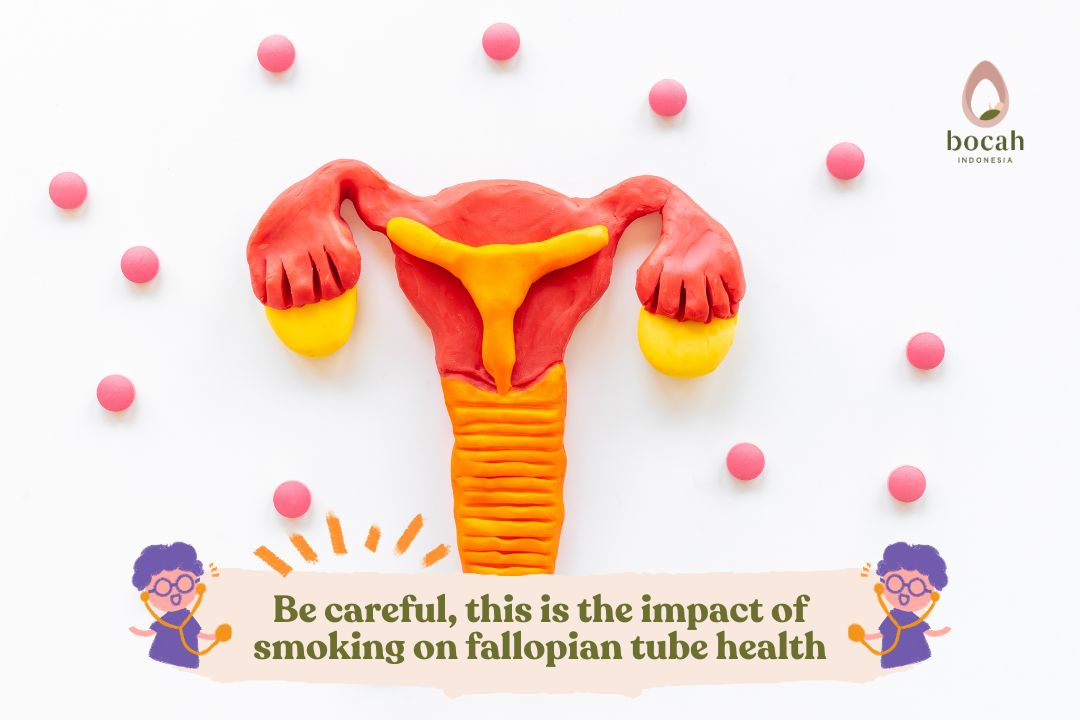Pre-Marital Check Up: The Importance of Health Examination Before Marriage

Pre-Marital Check Up: The Importance of Health Examination Before Marriage
There are several health tests that need to be done before marriage. These examinations are not only for women. Men should also undergo them before marriage.
Many prospective couples often overlook pre-marital screening. However, these tests are crucial for couples to prevent and detect factors causing infertility and diseases that can be inherited by their future children.
For those preparing for marriage, it is advisable not to skip these tests. Find out what tests need to be done before marriage and when is the appropriate time to undergo them through this article.
What is Pre-Marital Health Test?
Pre-marital health test is also known as pre-marital physical examination. It is a test conducted to help doctors determine the overall health status, especially fertility-related diseases, for both men and women.
Tanya Ferly tentang Promil?
Genetic pre-marital tests should be done together by couples, and it includes screening for infectious diseases, genetic pathologies to assess reproductive health, and genetic screening for the baby.
Even if you and your partner are healthy and have no concerning medical history, it is still beneficial to undergo pre-marital testing as potential risks are not always apparent externally.
Moreover, for couples preparing to get married, pre-marital testing is the best way to identify possible risks and their impact on future health.
Identifying risks early on will be crucial for doctors to implement the most effective prevention and treatment measures. Additionally, pre-marital health tests can also help you better understand your partner’s condition.
Objectives of Pre-Marital Health Test
Pre-marital screening includes fertility, sexuality, screening for sexually transmitted diseases, and genetic disease screening. Based on the results, the doctor will advise on fertility treatments, healthcare, and contraception (if needed). Here are some objectives of pre-marital health tests:
- Early detection of potential causes of infertility.
- Guidance for the best time to conceive and healthcare for a healthy and intelligent baby, and provide information to help couples plan for a good birth plan.
- Personal and genetic medical history examination.
- General medical examination includes height, weight, blood pressure, heart rate, digestion, and respiration.
- General health ultrasound: gallbladder, liver, kidneys, ureters, bladder.
- For women, additional gynecological examinations like ovarian examination, hysteroscopy, mammogram, urethral fluid testing.
- Men will require an ultrasound scan of the prostate glands, male examination, and semen analysis. Thanks to these tests, the quality of sperm can be evaluated, and fertility can be determined.
- Other tests include blood tests, complete blood count analysis, urine analysis, sex hormone tests, assessment of kidney function, liver function.
If you and your partner plan to conceive soon after marriage, women need to be vaccinated 3-6 months earlier with vaccines such as chickenpox, tetanus, and measles and mumps and rubella.
However, if you are not planning to conceive immediately, the doctor will inform you about safe and effective contraceptive methods to limit their effects on future reproductive health.
Types of Pre-Marital Health Tests You Need to Undergo
According to the Indonesian Ministry of Health, there are 7 types of health tests that you and your partner need to undergo in pre-marital examination, including:
1. Blood Examination
Blood tests include leukocytes, hematocrit, platelets, hemoglobin, red blood cells, and erythrocyte sedimentation rate. In women, hemoglobin level examination will help identify the risk of thalassemia.
2. Blood Type and Rhesus Test
This examination is important to determine the compatibility of blood type and rhesus factor between partners and its impact on the mother and child. Rh-negative combination in women and Rh-positive in men can lead to dangerous incompatibility in the child.
3. Hepatitis B Test
Through this test, you and your partner can avoid the risk of hepatitis B transmission through sexual intercourse. Hepatitis B is a serious disease that can cause physical defects and death in newborns.
4. TORCH Test
TORCH stands for Toxoplasma, Rubella, and Herpes, which can cause diseases. Transmission can occur through consuming raw food or contact with pet excrement. This test is important to prevent miscarriage and premature birth.
5. HIV/AIDS Examination
This test is mandatory and regulated in the Minister of Health Circular. Usually, HIV/AIDS testing is conducted on pregnant women. The examination involves taking a blood sample from you and your partner. In addition to HIV testing, prospective spouses are also advised to undergo testing for sexually transmitted diseases, such as chlamydia, gonorrhea, hepatitis, herpes, and syphilis.
6. Blood Sugar Test
Knowing blood sugar levels is not only to prevent diabetes but also to help couples anticipate complications of this disease. This test is particularly important for pregnant women with unstable hormones.
7. Urine Test
Lastly, it is recommended to perform a complete urine test. Through this test, you can determine the presence of systemic or metabolic diseases based on urine color, smell, and output.
Currently, almost all major hospitals provide pre-marital examination and treatment services for couples in need. Look for hospitals with good ratings in pre-marital screening to get accurate results and specific advice from the right doctor.
The cost of pre-marital testing for women is often higher than for men due to the need for more specific fertility examinations and future pregnancy. Therefore, to know the exact price, when conducting an examination, the doctor will provide the most specific advice.
Thus, pre-marital screening is a highly important test for couples planning to get married and have plans to have children in the future. To have the most thorough preparation before childbirth, you should undergo examinations, consultations, and accurate treatments with specialized doctors.
Ask Ferly
Sources:
- 7 Jenis Tes dalam Cek Pra-Nikah yang akan Dijalani Calon Pengantin. Kementerian Kesehatan Republik Indonesia. Accessed 2023. https://promkes.kemkes.go.id/7-jenis-tes-dalam-cek-pra-nikah-yang-akan-dijalani-calon-pengantin
- Premarital Screening. Ministry of Health – Kingdom of Saudi Arabia. Accessed 2023. https://www.moh.gov.sa/en/HealthAwareness/Beforemarriage/Pages/default.aspx
- VDRL test. MedlinePlus. Accessed 2023. https://medlineplus.gov/ency/article/003515.htm
- Hepatitis B Surface Antigen. University of Rochester Medical Center. Accessed 2023. https://www.urmc.rochester.edu/encyclopedia/content.aspx?contentid=hepatitis_b_surface_antigen&contenttypeid=167
- Hashemizadeh, H., & Noori, R. Premarital Screening of Beta Thalassemia Minor in north-east of Iran. Iranian journal of pediatric hematology and oncology. Accessed 2023. https://www.ncbi.nlm.nih.gov/pmc/articles/PMC3915444/






One Response
A living testimony..
Very good herbal med.
Herpes cure